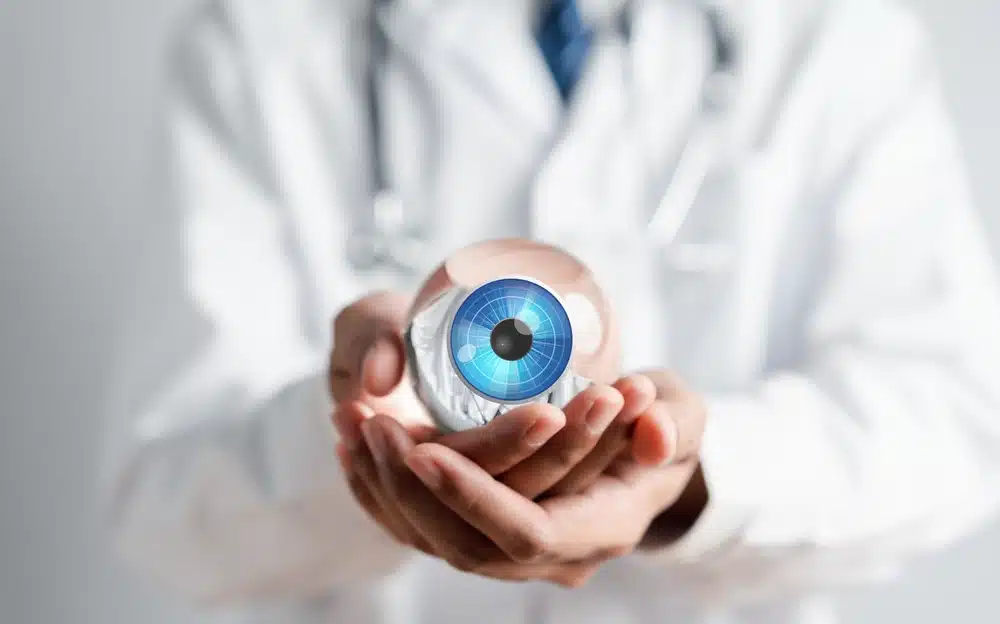All Categories
Featured

While the majority of individuals understand the significance of shielding their skin from the sunlight, the harmful effects of ultraviolet (UV) rays on eye wellness often go ignored. Whether you're soaking up the sunlight on a summer season day or strolling outdoors on an over cast mid-day, safeguarding your eyes from UV rays is necessary.
What Are UV Rays? UV rays are a sort of electromagnetic radiation emitted by the sunlight. They are classified right into three kinds:
UVA Rays: These penetrate deep right into the skin and eyes and can contribute to long-term damages. UVB Rays: These rays are extra extreme than UVA and are largely responsible for surface-level damages to the eyes and skin. UVC Rays: These are the most damaging but are mostly absorbed by the Planet's ozone layer and don't usually reach us. UVA and UVB rays are the key perpetrators behind eye-related damage.
Short-Term Results of UV Direct Exposure on the Eyes. Even temporary direct exposure to intense UV rays can damage your eyes. One usual problem triggered by this is photokeratitis, or "sunburn of the eye." Symptoms of photokeratitis consist of:
Unpleasant, red eyes. Sensitivity to light. Tearing or too much watering. Temporary vision loss or blurry vision. Photokeratitis is generally short-term, yet it serves as a caution of exactly how harmful UV direct exposure can be, also in tiny dosages.
Long-Term Impacts of UV Direct Exposure. Prolonged exposure to UV radiation can result in more severe and irreversible eye conditions, such as:
Cataracts: UV rays can accelerate the formation of cataracts, a problem that causes clouding of the eye's natural lens, bring about fuzzy vision and, if unattended, blindness.

Macular Degeneration: UV exposure can damage the retina, particularly the macula, raising the danger of age-related macular deterioration (AMD), which impacts main vision.
Pterygium: A growth of tissue on the white part of the eye that can prolong over the cornea, creating pain, inflammation, and vision troubles.
Pinguecula: UV direct exposure can cause yellow-colored deposits to develop on the conjunctiva, bring about inflammation and dry skin.
Skin Cancer Around the Eyes: The fragile skin bordering your eyes is extremely at risk to UV radiation, enhancing the risk of skin cancers cells like basic cell cancer and squamous cell cancer.
How to Secure Your Eyes from UV Rays. Safeguarding your eyes from UV rays is easy and requires a few mindful practices:
Buy Quality Sunglasses: Choose sunglasses that obstruct 100% of UVA and UVB rays. Look for tags that specify "UV 400" protection. Wrap-around styles are suitable as they obstruct UV rays from the sides too.
Put On a Wide-Brimmed Hat: A hat with a brim a minimum of three inches large can dramatically lower UV direct exposure to your eyes and face.
Limitation Direct Exposure Throughout Top Hours: UV rays are greatest in between 10 a.m. and 4 p.m. If you should be outdoors during these hours, ensure you're properly safeguarded.
Don't Be Misleaded by Clouds: UV rays can penetrate through clouds, so it's important to wear sunglasses even on cloudy days.
Protect Your Eyes Year-Round: Snow, sand, and water can show UV rays, heightening their effects. Eye security isn't simply for bright summer season days-- ensure you're covered in all periods.
Use UV-Blocking Get In Touch With Lenses: Many call lenses currently feature UV security. If you wear calls, ask your eye doctor concerning lenses with integrated UV filters for included defense.
Encourage Eye Protection for Children: Kid's eyes are extra conscious UV rays due to the fact that their lenses are more clear, enabling even more radiation to get to the retina. Make certain they use sunglasses and hats throughout outside tasks.
Regular Eye Examinations. Normal exams with an eye treatment specialist are crucial for early detection of any kind of UV-related damage. An eye doctor or ophthalmologist can assess your eyes, recommend protective procedures, and find conditions like cataracts or macular degeneration beforehand.
Conclusion. By putting on UV-blocking sunglasses, limiting sunlight direct exposure during height hours, and staying regular with eye exams, you can ensure your eyes remain healthy and balanced and your vision remains clear for years to come. Safeguarding your eyes from UV radiation isn't just concerning convenience-- it's a vital action in preserving your long-lasting eye wellness.
Latest Posts
Explore Limited-Time Auto Repair Deals in Chicago at Montclare Auto Repair
Explore Special Auto Repair Offers in Chicago at Montclare Auto Repair
Unlock Your Financial Partner at WyHy – High Rewards for Wyoming Residents
More
Latest Posts
Explore Limited-Time Auto Repair Deals in Chicago at Montclare Auto Repair
Explore Special Auto Repair Offers in Chicago at Montclare Auto Repair
Unlock Your Financial Partner at WyHy – High Rewards for Wyoming Residents